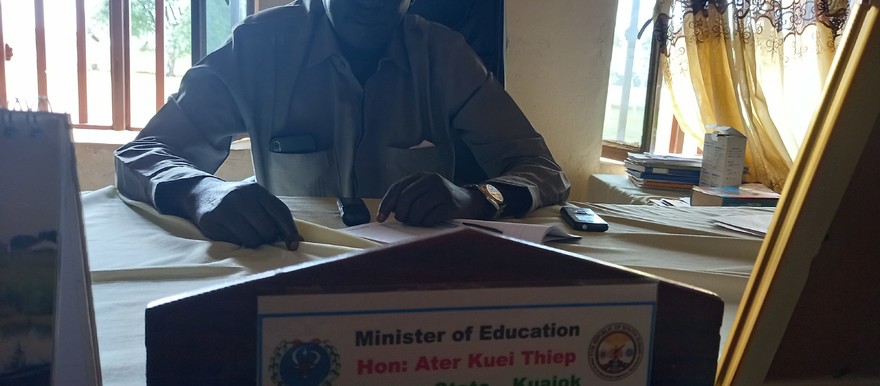Schools in Warrap State are facing challenges in implementing Covid-19 preventive protocols with many schools missing basic handwashing facilities and teaching staff and their charges lacking face masks.
Radio Tamazuj sounded out several pupils and their teachers who said they were vulnerable to the coronavirus since schools reopened.
Abuk Manggo, a student of Nile Academic Secondary School in Kuajok town said the lack of facemasks is worrying because they do not practice social distancing while in class.
“In Nile Academic Secondary School, we don’t have facemasks and students stay near each other in the classes and it is not good to stay while breathing without facemasks,” she said.
A pupil at St. Augustine Primary School, Wol Kuot Deng, said many pupils do not have face masks but have to continue learning in congested classes.
“Most of the students do not use facemasks but we got information of how important it is to use them but some students don’t comply while others don’t have masks for coronavirus,” Kuot said.
A father of five, James Anei, who resides in Kaujok town said the delay of salary payments hindered him from buying facemasks for his children.
“We, the parents have faced so many challenges because the salary doesn’t come monthly and I have almost seven months without money. I have managed on my own to pay school fees. I sold two bulls, and again teachers want facemasks in schools. Where will we get money?” Anei lamented.
Bakhita Aguek, another Kuajok parent, said it was their responsibility to prepare children for schools with facemasks but that some parents ignored the pandemic and said it was a hoax.
“My name is Bakhita Aguek, a resident of Majak Amal in Kuajok. For me, it is the responsibility of parents to buy face masks for their children. My children have facemasks and they are studying at St. Joseph Primary school. Other parents ignored the pandemic. They say it is a joke,” Aguek said.
Akol Akol Ayii, the headteacher of Kuajok Boys’ Primary School, said facemasks were distributed last year and those washing facilities are not enough in the school.
“Last year the few distributed masks were lost by students. Even my staff and I don’t have facemasks. The washing facilities are not covering the school so I request NGOs supporting education to provide more. Parents don’t provide for their children facemasks and when we talk to them, they say they are poor,” Akol said.
Marco Mathuc Mayar, the headteacher of Majak Amal Primary school, also said a few facemasks were distributed last year to a few pupils and the rest did not receive.
“The facemasks you see here were from last year that I kept and I have distributed to children up to Primary five and they got finished this year. I asked the ministry to provide some more facemasks,” he said.
According to the WHO: “Masks should be used as part of a comprehensive strategy of measures to suppress transmission and save lives; the use of a mask alone is not sufficient to provide an adequate level of protection against Covid-19.”
Mathiang Marup, the principal of Kuajok National Secondary School, said some facilities were delivered by the education ministry but were incomplete.
“One facility which was delivered to this school was for hand washing but it is lacking other materials,” Marup said. “Facemasks are not here completely but we have enough classrooms for the students to observe social distancing, to sit one meter apart.”
Meanwhile, the Warrap state minister of general education and instruction, Ater Kuei Thiep, described some of the challenges as inevitable and urged school teachers and parents to keep educating students on the importance of facemasks during classes.
"When schools reopened, we instructed teachers and parents to keep the protocols of preventing Covid-19 like using facemasks and spacing of classes. Like 50 and 45 students are to be in secondary and primary classes respectively and washing of hands must be observed before classes,” Kuei said. “The problem is facemasks itself, some parents are not able to provide for their children and due to long stay, as covid-19 closed down schools last year, it made most teachers desert and look for greener pastures. So we ran out of teachers but the ministry used their money to pay for part-timers and now the teaching is okay.”




